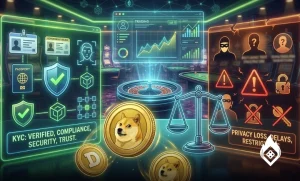
“The problem is not online gambling. The problems are the social effects on our children and those who are addicted to gambling,” President Marcos stressed.
Philippine President Ferdinand Marcos Jr. has warned that a complete ban on online gambling in the country could do more harm than good.
In a recent interview, Marcos said that a total ban on online gambling would likely drive the industry underground. This could make it harder for the government to monitor and control. He shared, `“The first effect of banning it fully is to put it underground, and then we have no control”. “That’s when there is really no regulation.”
Instead of pushing for a blanket prohibition, the President said the focus should be on minimizing harm, especially to children and vulnerable sectors who are at risk of gambling addiction.
“The problem is not online gambling. The problems are the social effects on our children and those who are addicted to gambling,” Marcos stressed.
He announced plans to call a conference of stakeholders, including regulators, parents, church leaders, and advocacy groups for outlining a more thoughtful policy on the matter. Marcos plans to protect the public without letting the industry slip into the shadows.
Presently, considerations for restrict or even ban internet gambling have been gaining momentum especially from lawmakers and church officials concerned about addiction and financial hardship. But, Marcos believes that any decision must come after wide consultation.
Note that his administration has yet to finalize a clear policy, though discussions have already started. In a recent vlog, he reiterated the need for a collective approach as believes that rules should not be set in isolation.
This is not the first time gambling has sparked national debate in the Philippines. Marcos distinguished the current issue from the earlier controversy surrounding Philippine Offshore Gaming Operators (POGOs). Once legal, POGOs were eventually linked to crimes like human trafficking and scams. That led to a full ban, which he announced during his third State of the Nation Address (SONA) in 2024.
Contrastingly, online gambling that targets local players poses a different set of challenges. He reiterated that they should not be combated with prohibition but better standards and stronger safeguards.
On the other hand, Bangko Sentral ng Pilipinas (BSP) is drafting new rules to control excessive gambling. The upcoming guidelines will require banks, e-wallets, and payment platforms to adopt stricter protections.
These proposed steps are biometric ID verification, daily spending limits, time-restricted access to payment services, and features allowing users to set voluntary breaks or self-exclude.
The central bank says these steps aim to reduce addiction and financial harm as they promote responsible use of digital finance tools.
In the past week, industry players such as Digiplus had similar concerns. The company earlier warned that if legally licensed online platforms were banned it would simply place users in the hands of illegal operators. Hence they support a stricter, but equitable policy.
The urgency of the issue has been growing, and this could be attributed to growing cases of gambling addiction among young Filipinos and low-income households. Still, the President made no mention of it during his recent fourth SONA on July 28.
As for now, the administration is working on gathering input before introducing a definitive policy. A clearer framework is expected once consultations are completed.
In the first half of 2025, the country’s gaming industry reported ₱215 billion in gross revenue. Out of this, ₱93.36 billion reportedly came from integrated resorts.
Similar regulatory steps have been taken in the Argentine city of Malargüe, where a directive for blocking access to online gambling websites through all public Wi-Fi networks has been passed. This decision has been implemented to check on the growing risks of digital gambling addiction.
Also Read: Old-School Gambling Falters as Crypto Fuels US’ $67B Shadow Betting
Disclaimer: All news published on Times Of Casino is provided for general informational purposes only and should not be considered legal, financial, investment, or professional advice. While we strive for accuracy, the online gambling industry evolves quickly, and information may change. Times Of Casino is not liable for any losses resulting from the use of this content. Readers are advised to verify information independently and consult professionals before taking action related to casinos, its affiliates, or gambling services.
Why Trust Times Of Casino: All products and services featured on this page have been independently reviewed and evaluated by our team of experts to provide you with accurate and reliable information. Learn how we rate.
See less